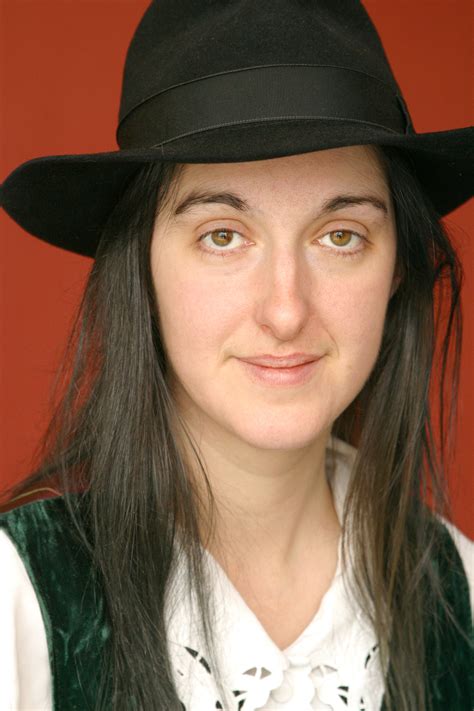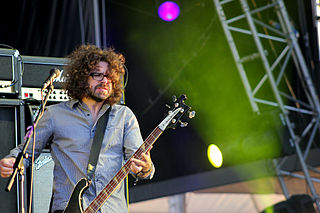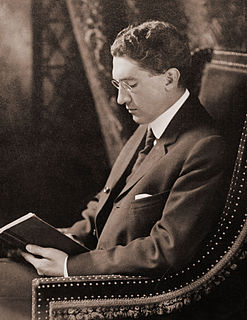A Quote by Gore Vidal
I Must warn you, Iris, that I'm not a believer. And though I'm sure that the revelations of other men must be a source of infinite satisfaction to them, individually, I shouldn't for one second be so presumptuous as to make a choice among the many thousands of recorded revelations of truth, accepting one at the expense of all the others: I might so easily choose wrong and get into eternal trouble. And you must admit that the selection is wide, and dangerous to the amateur.
Related Quotes
Truth is dangerous. It topples palaces and kills kings. It stirs gentle men to rage and bids them take up arms. It wakes old grievances and opens forgotten wounds. It is the mother of the sleepless night and the hag-ridden day. And yet there is one thing that is more dangerous than Truth. Those who would silence Truth’s voice are more destructive by far. It is most perilous to be a speaker of Truth. Sometimes one must choose to be silent, or be silenced. But if a truth cannot be spoken, it must at least be known. Even if you dare not speak truth to others, never lie to yourself.
Humans, like all other creatures, must make a difference; otherwise, they cannot live. But unlike other creatures, humans must make a choice as to the kind and scale of difference they make. If they choose to make too small a difference, they diminish their humanity. If they choose to make too great a difference, they diminish nature, and narrow their subsequent choices; ultimately, they diminish or destroy themselves. Nature, then, is not only our source but also our limit and measure.
A man must first of all understand certain things. He has thousands of false ideas and false conceptions, chiefly about himself, and he must get rid of some of them before beginning to acquire anything new. Otherwise the new will be built on a wrong foundation and the result will be worse than before. To speak the truth is the most difficult thing in the world; one must study a great deal and for a long time in order to speak the truth. The wish alone is not enough. To speak the truth one must know what the truth is and what a lie is, and first of all in oneself. And this nobody wants to know.
My days I devote to reading and experiments in chemistry, and I spend many of the clear nights in the study of astronomy. There is, though I do not know how there is or why there is, a sense of infinite peace and protection in the glittering hosts of heaven. There it must be, I think, in the vast and eternal laws of matter, and not in the daily cares and sins and troubles of men, that whatever is more than animal within us must find its solace and its hope.
Our hopes of avoiding the fate which threatens must...[be to make]adjustments that will be needed if we are to recover and surpass our former standards...and only if every one of us is ready to individually obey the necessities of readjustment shall we be able to get through a difficult period as free men who can choose their own way of life. Let a uniform minimum be secured to everybody by all means; but let us admit at the same time that with this assurance of a basic minimum all claims for a privileged security for particular classes must lapse.
We have been accustomed to thinking that we have to get something from outside us in order to be happy, but in truth it works the other way: we must learn to contact our inner source of happiness and satisfaction and flow it outward to share with others-not because it is virtuous to do so, but because it really feels good.
The prospect of penury in age is so gloomy and terrifying that every man who looks before him must resolve to avoid it; and it must be avoided generally by the science of sparing. For, though in every age there are some who, by bold adventures, or by favorable accidents, rise suddenly to riches, yet it is dangerous to indulge hopes of such rare events; and the bulk of mankind must owe their affluence to small and gradual profits, below which their expense must be resolutely reduced.
We live by revelations, as Christians, as artists, which means we must be careful never to get set into rigid molds. The minute we begin to think we know all the answers, we forget all the questions and we become like the pharisee who listed all his considerable virtues, and thanked God that he was not like other men.
We can not communicate with the Lord if we do not communicate with each other. If we want to present ourselves to him, we must take a step towards meeting one another. To do this we must learn the great lesson of forgiveness: we must not let the gnawings of resentment work in our soul but must open our hearts to the magnanimity of listening to others, open our hearts to understanding them, eventually to accepting their apologies, to generously offering our own.
Superstitions, bigotries, hypocrisies, prejudices, these phantoms, phantoms though they be, cling to life; they have teeth and nails in their shadowy substance, and we must grapple with them individually and make war on them without truce; for it is one of humanity's inevitabilities to be condemned to eternal struggle with phantoms.
Religion must be used in furthering great works of justice and reform. It must be used to establish right relations between different groups of men, and thus to make a reality of brotherhood. It must be used to abolish poverty, the breeding ground of all misery and crime, by distributing equably among men the abundance of the soil. And it must be used to get rid of war and to establish enduring peace. Here is the supreme test of the effectiveness of religion.
I realize anew that, just as we must learn to obey God one choice at a time, we must also learn to trust God one circumstance at a time. Trusting God is not a matter of my feelings but of my will. I never feel like trusting God when adversity strikes, but I can choose to do so even when I don’t feel like it. That act of the will, though, must be based on belief, and belief must be based on truth.
It’s also true that I might have never made Taxi Driver [1976] were it not for the success of Alice [Doesn’t Live Here Anymore, 1974]. The question of commercialism is a source of worry. Must one make a choice, must it be a matter of either setting your sights on winning an Academy Award and becoming a millionaire, or making only the movies you want to make and starving to death?






































